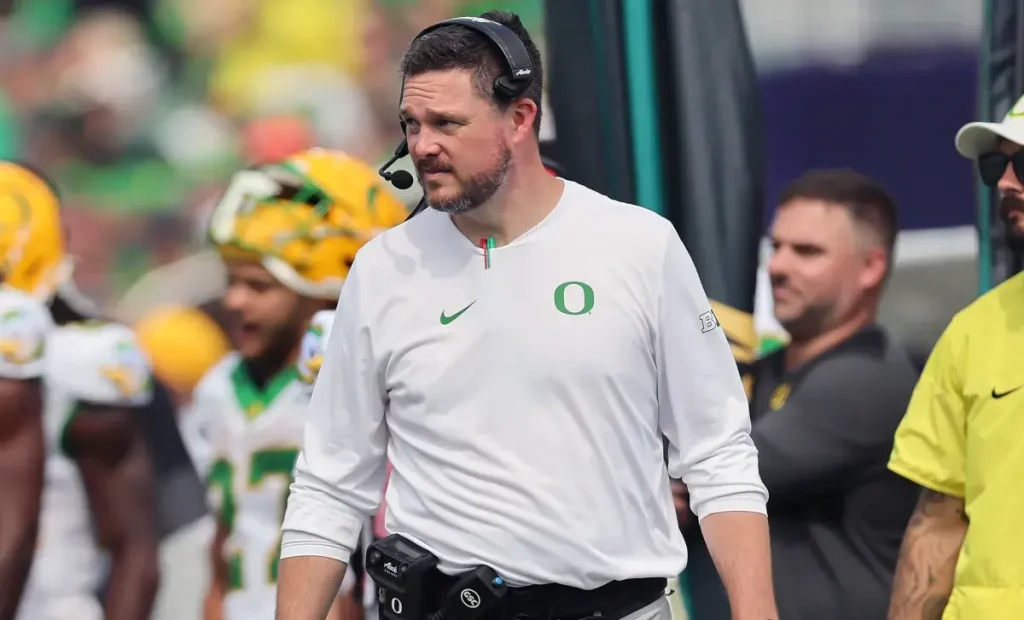Brian Kelly’s Shocking Departure from LSU: A New Chapter in College Football
In a stunning turn of events, LSU abruptly terminated head coach Brian Kelly’s contract following a humiliating 49-25 defeat to Texas A&M. While fans had been calling for Kelly’s dismissal for weeks, the university’s willingness to trigger his massive $54 million buyout clause still sent shockwaves through the college football landscape. This bold move demonstrates LSU’s commitment to excellence and determination to reshape their football program, regardless of the financial burden. The decision wasn’t made on impulse but represented the culmination of mounting frustrations and a clear disconnect between Kelly’s leadership and the program’s championship aspirations.
With Kelly’s departure, LSU now embarks on an ambitious coaching search that could potentially see them investing nearly $100 million between paying off Kelly and securing a high-profile replacement. The Tigers aren’t shying away from pursuing the biggest names in college coaching, with reports suggesting they may approach legendary former Alabama coach Nick Saban, Ole Miss’s charismatic Lane Kiffin, Louisville’s Jeff Brohm, Missouri’s rising star Eli Drinkwitz, and even Texas A&M’s Mike Elko. This aggressive approach reflects LSU’s status as one of college football’s premier destinations—a program with championship pedigree unwilling to settle for mediocrity. Their willingness to make such a significant financial commitment signals to prospective candidates and the college football world that LSU remains committed to competing at the highest level.
Among the potential candidates, Oregon’s Dan Lanning has emerged as an intriguing possibility, though perhaps the most challenging to secure. Sports Illustrated’s Bryan Fischer believes LSU Athletic Director Scott Woodward will almost certainly reach out to Lanning, even though the chances of successfully luring him away from Oregon appear slim. “If Woodward is allowed to make the next hire, there’s little question he will target a big name,” Fischer noted. “That’s Lanning right now, though there are questions over if he would leave Eugene, Ore., even for a job like LSU.” Fischer further emphasized that Lanning’s contractual obligations and buyout clauses have previously deterred other well-funded suitors, suggesting that even LSU might struggle to create a compelling enough package to sway him from his current position.
Lanning’s remarkable success at Oregon certainly justifies LSU’s interest. In just over three seasons, he has transformed the Ducks into a national powerhouse, compiling an impressive 42-7 record (an exceptional .857 winning percentage) that includes two bowl victories and a College Football Playoff appearance. At just 39 years old, Lanning represents the new generation of college football coaches who combine innovative strategic thinking with strong recruiting capabilities and program management skills. His youth and demonstrated success make him an ideal candidate for a program looking to establish long-term stability and championship contention, which aligns perfectly with LSU’s aspirations and traditional standing in college football.
The financial realities of pursuing Lanning, however, present significant obstacles. He recently committed to Oregon through 2030 with a lucrative six-year extension worth nearly $11 million annually. More prohibitively, any school wanting to hire Lanning would need to pay a staggering $20 million buyout to Oregon. When combined with the already enormous financial obligation LSU has taken on with Kelly’s buyout, pursuing Lanning would represent an unprecedented financial commitment to coaching personnel. While LSU clearly values excellence and is willing to invest substantially in achieving it, even their deep pockets might have limits, especially considering the changing economic landscape of college athletics with NIL deals and other financial considerations now in play.
As LSU navigates this critical juncture, their coaching search will be scrutinized nationally as a barometer for how elite programs respond to disappointment in the modern era of college football. The willingness to absorb such significant financial hits demonstrates how the stakes have escalated in top-tier college football programs, where the pressure to win championships drives decision-making more than financial prudence. Whoever ultimately takes the reins at LSU will inherit both tremendous resources and equally tremendous expectations. The Tigers’ aggressive approach to this coaching search—reaching for established winners regardless of cost—reflects their unwavering commitment to restoring their place among college football’s elite programs. Whether they land a high-profile name like Lanning or pivot to another candidate, LSU has made it abundantly clear that mediocrity is unacceptable in Baton Rouge, and they’re willing to pay whatever it takes to return to championship contention.


